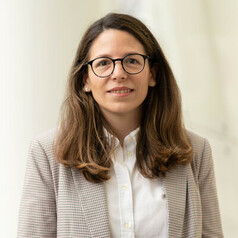
Patricia Correa
Lecturer in Politics and International Relations, Aston University
Prior to joining Aston as a Lecturer in Politics and International Relations, I was a Postdoctoral Research Fellow at the University of Exeter (UK). I received my PhD in Politics from the Autonomous University of Barcelona (Spain) in November 2015.
My research agenda is driven by a fundamental interest in the internal organization, and the electoral and governmental behaviour of political parties. To date, the primary purpose of my research has been to understand how political parties face changes in the political system and, hence, the party system where they compete. Parallel to this, my research has also focused on two additional issues linked to political parties, the main characteristics and behaviour of middle-level party elites and party activists and parties' adaptation to digitalization.
Less ![]()
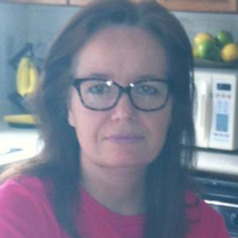
Patricia Dekeseredy
Clinical Research Specialist, West Virginia University
I am a researcher at WVU Medicine and West Virginia University. I have published in the area of opioid use, drug policy and stigma. I am a Canadian living in West Virginia researching the opioid crisis, social determinants of health and health care disparities.
Less ![]()
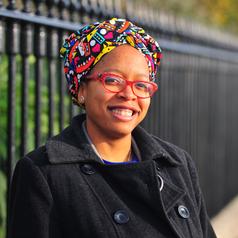
Patricia Hamilton
Lecturer in Sociology, University of York
Patricia joined the University of York as a Lecturer in Sociology in September 2022. She completed her undergraduate degree in South Africa, majoring in English and Sociology, before moving to the UK for an MA in Gender Studies, funded by a Commonwealth scholarship.
For her PhD at the University of Western Ontario, Patricia interviewed black mothers living in the UK and Canada and explored their engagements with attachment parenting, a popular parenting philosophy that emphasises secure attachment between mother and child and is promoted as a ‘natural’ and ‘instinctive’ approach to raising children. The monograph based on this doctoral research, Black Mothers and Attachment Parenting, was published in the Bristol University Press Sociology of Children and Families series and was shortlisted for the 2021 BSA Philip Abrams Memorial Prize.
She's currently writing a book about the development of parenting leave policies, including maternity leave and Shared Parental Leave, in the UK.
Less ![]()

Patricia Hogwood
I am a Reader in European Politics in the Department of Politics and International Relations (DPIR). I completed my PhD in European Studies at the University of Bradford and taught at the universities of Strathclyde, Edinburgh and Glasgow before coming to the University of Westminster in 2004. I work in the fields of comparative European politics and European Union politics, specialising in German politics, political identity and internal security.
Less ![]()
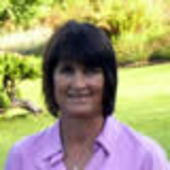

Patricia MacCormack
Professor of Continental Philosophy, Anglia Ruskin University
Patricia is a researcher who has published in the areas of continental philosophy (especially Deleuze, Guattari, Serres, Irigaray, Lyotard, Kristeva, Blanchot, Ranciere), feminism, queer theory, posthuman theory, horror film, body modification, animal rights/abolitionism, cinesexuality and ethics.
Patricia has published extensively in the areas of Continental philosophy, feminism, queer theory, posthuman ethics, animal studies and horror films. The REF test rated all her work at 4*. Her work has been cited and reviewed internationally resulting in many invites to HEIs to speak both to Faculty and public lectures. Her monographs Cinesexuality, Posthuman Ethics and The Animal Catalyst collection have been key reading on curricula internationally, including Monash University, Brock University, UCSB and universities in Europe, North and South America and Australia. She has had successful large single researcher grant applications and continues to apply for large grants.
Less ![]()
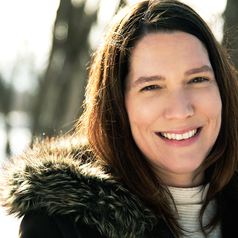
Patricia Raymond
Chercheuse scientifique et professeure associée, Université du Québec à Chicoutimi (UQAC)
Patricia Raymond est ingénieure forestière et chercheuse scientifique à l’emploi de la Direction de la recherche forestière du Ministère des Ressources naturelles et des Forêts du Québec depuis 2002. Passionnée d’écologie forestière et de sylviculture appliquée, elle s’intéresse particulièrement à la forêt mixte tempérée pour laquelle elle expérimente des méthodes de régénération compatibles avec l'aménagement écosystémique et d'autres pouvant aider les forêts à s'adapter aux changements globaux.
Less ![]()

Patricia Sánchez-Holgado
Personal Docente e Investigador, Universidad de Salamanca
Doctora en Formación en la Sociedad del Conocimiento por la Universidad de Salamanca. Licenciada en Publicidad y Relaciones públicas por la Universidad Complutense de Madrid. Postgrado en Dirección y Gestión de empresas por la Escuela de Administración de Empresas de la Universidad Politècnica de Catalunya. Postgrado en Big Data y Data Science por la Universidad Pontificia de Salamanca. Máster en Estudios de la Ciencia, la Tecnología y la Innovación, con especialidad en Cultura Científica por la Universidad de Oviedo. Máster Universitario en Formación del Profesorado de Educación Secundaria Obligatoria y Bachillerato, Formación Profesional y Enseñanzas de Idiomas. Posee experiencia laboral de más de 20 años en el campo de la comunicación en empresas privadas.
Sus líneas de investigación se centran en: adopción de tecnologías, comunicación científica, big data e inteligencia artificial en comunicación, perspectiva de género, opinión pública, migraciones, discursos de odio y métodos computacionales de investigación en ciencias sociales.
Less ![]()
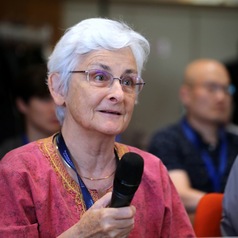
Patricia Ann Whitelock
Former director of SAAO and honorary professor at UCT, South African Astronomical Observatory
Whitelock is an astronomer at, and former director of, the South African Astronomical Observatory and an honorary professor at the University of Cape Town. She obtained her BSc and PhD at the University of London. Her primary research interests are the late stages of stellar evolution, mass-loss and variability. She also works on galactic structure, near-by galaxies and the cosmic distance scale. She is involved in astronomy education, astronomy for development, and international coordination and collaboration. She has served as president of the International Astronomical Union’s Division VII (Galactic Systems), is a member of the Academy of Sciences of South Africa, an honorary fellow of the Royal Astronomical Society (UK) and an honorary member and fellow—and former president—of the South African Institute of Physics (SAIP). She is the recipient of the 2018 de Beers Gold Medal of the SAIP and a Doctor of Laws (honoris causa) from Rhodes University in 2020.
Less ![]()

Patricia Arranz Alonso
Researcher in Marine Biology, Universidad de La Laguna
Patricia Arranz is a marine biologist and marine mammal expert
Less ![]()
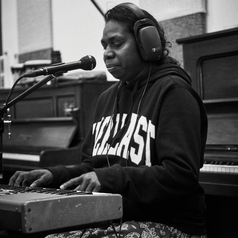
Patricia Nja-wakadj Gibson
Indigenous Knowledge Holder, Indigenous Knowledge
Patricia is from Dhukurrdji clan, the traditional landowners of Maningrida community in West Arnhem Land, Northern Territory. She speaks Ndjébbana, Kuninjku, Na-kara and Kun-barlang. Her skin name is Nja-wakadj and she is from the Yirridja moiety. Patricia grew up on the tiny outstation of Modkorldjban, in the rocky country. When she was 10 years old she moved to the Waláya area of Maningrida where she went to school and learnt music. Patricia is a djunggay and cultural leader for ceremony in and around Maningrida.
Patricia is an established gospel singer and composer. With her brother, she records songs that reflect the troubles she has seen and the strength needed to overcome. She is also keyboard player, vocalist and songwriter in the all-women’s rock band Ripple Effect Band. She has toured nationally and her song Ngúddja was recently featured in the Stan series BUMP. Through her work with the band, she collaborates on research about popular music, First Nation languages and the power of music to contribute to social change.
Currently Patricia works at Mala'la Health Service in Maningrida on the Rheumatic Heart Project as a community liaison officer.
Less ![]()
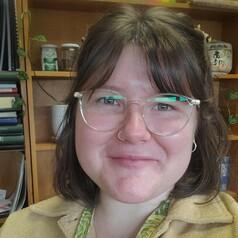
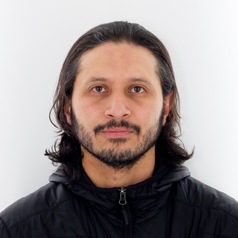
Patricio Gallardo
Researcher in Transition Engineering, University of Canterbury
Patricio is a research engineer at the Electric Power Engineering Centre. His area of research focuses on transportation as an energy system. He has cross-disciplinary experience integrating transition engineering, energy systems planning, GIS-based analysis, and microsimulation approaches. Patricio is passionate about everything that revolves around energy and transportation planning, data science, and GIS analysis. He is a member of the Global Association for Transition Engineering (GATE), and is open to collaborate on projects aiming to engineer the decarbonization of complex activity systems.
Less ![]()
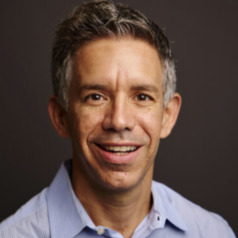
Patrick Abouchalache
Lecturer in Strategy and Innovation, Boston University
Patrick Abouchalache is a lecturer in Strategy and Innovation and Family Business at Boston University's Questrom School of Business, and founded The PEGA Group, a Boston- and New York-based operating, investment and advisory firm.
Less ![]()
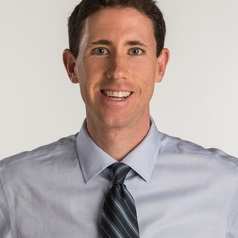
Patrick Barry
Clinical Assistant Professor and Director of Digital Academic Initiatives (University of Michigan Law School) | Visiting Lecturer (University of Chicago Law School) | Visiting Lecturer (UCLA School of Law), University of Michigan
Patrick Barry is a clinical assistant professor of law and the director of digital academic initiatives at the University of Michigan Law School and a visiting lecturer at the University of Chicago Law School and the UCLA School of Law. His teaching and research focus on creating a new vocabulary to talk about advocacy, especially in the age of artificial intelligence.
Among his teaching awards are the Wayne Booth Prize for Excellence in Teaching, the Provost’s Innovation in Teaching Prize, and the Outstanding Research Mentor Award. In addition, he was recently selected as a faculty fellow by the Office of Diversity, Equity, and Inclusion’s Center for Educational Outreach and a Public Engagement Fellow by the Center for Academic Innovation.
An All-American soccer player in college, Barry focused on the theatrical aspects of Supreme Court confirmation hearings as a PhD student in English at the University of Michigan. During that time, he also worked with other Michigan faculty to create Clinnect, a global network of legal clinics devoted to combating human trafficking.
Barry is the author of ten books—including Good with Words: Writing and Editing, Good with Words: Speaking and Presenting, Feedback Loops: How to Give and Receive High-Quality Feedback, and The Syntax of Sports. He has also created several online courses for the educational platforms Coursera and Michigan Online and regularly collaborates with the Human Trafficking Clinic, the Child Welfare Appellate Clinic, and the Social Enterprise Clinic, as well as with various law firms, government agencies, and nonprofit organizations. He is a member of the California Bar.
Less ![]()
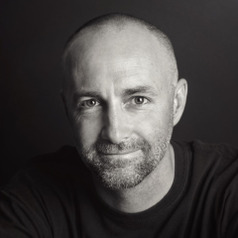
Patrick Bixby
Associate Professor of English, Arizona State University
Patrick Bixby (he/him/his) is an associate professor of English in the New College of Interdisciplinary Arts and Sciences at Arizona State University.
After earning a BA in psychology from the University of California, Los Angeles and a MA in English from California State University, Long Beach, Bixby completed his PhD in English at Emory University in 2003. He served as visiting assistant professor of literature at Claremont McKenna College for one year and then joined the faculty of ASU’s New College, where he has held a number of posts. In 2017, after directing several graduate programs and then serving as director of graduate studies for the college, he took a role building partnerships between the university and Arizona tribal communities, as well as other universities around the globe. Most recently, in 2021, he became the program lead for the BA in Disability Studies. In addition to these duties, he currently serves as vice president of the Samuel Beckett Society and resident director of the USAC summer school program at NUI Galway.
Bixby's scholarly interests span a variety of fields, including Irish studies, modernist studies, postcolonial theory and criticism, Continental philosophy, and issues of travel, mobility, and the body. He teaches courses in these fields and in the history of the novel, the history of film, the history of literary criticism, twentieth-century thought, postmodernism, and methods of interdisciplinary research.
His essays have appeared in journals such as Modernism/Modernity, Modernist Cultures, Irish Studies Review, and the Journal of Beckett Studies, as well as in collections such as A History of Irish Modernism (Cambridge UP, 2019), A History of the Modernist Novel (Cambridge UP, 2015), Beckett in Context (Cambridge UP, 2013), and Beckett and Ireland (Cambridge UP, 2010).
Bixby's latest book, License to Travel: A Cultural History of the Passport (U of California P, 2022), investigates the unyielding paradox of the document: even as it promises independence and mobility, escape and safe haven, the passport also serves as an essential tool of government surveillance and state power, purportedly assuring homeland security and the controlled movement of individuals across national boundaries. The study investigates this paradox by drawing on a range of sources, including literary history and modern art, archival documents and contemporary journalism, international law and theories of cosmopolitanism.
Less ![]()
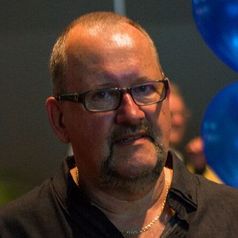
Patrick D. Nunn
Professor of Geography, Sustainability Research Centre, University of the Sunshine Coast
After 30 years of research, mostly focused in the Asia-Pacific region, Professor Nunn has accumulated a degree of expertise in a number of different fields. His primary field is geography, once largely physical in focus, but now straddling various aspects of sustainability. Professor Nunn has worked for a number of years in climate change, mostly on sea level and on the challenges of effective adaptation in poorer countries. He has also worked on archaeological topics, usually through the lens of palaeoenvironment reconstruction, but also applying his geological training to ceramic mineralogy and radiocarbon chronology. Since 2000, when a coup in Fiji interrupted a planned research programme, Professor Nunn became interested in myths as potential sources of information about geological hazards, particularly earthquakes and tsunamis, volcanic eruptions and abrupt coastal change.
Less ![]()

Patrick Degenaar
Reader in Neuroprosthesis, Newcastle University
I am a reader in biomedical engineering and came to Newcastle in 2010 to develop world class collaborations between the school of EEE and the Institute of Neuroscience. I have a BSc (1st class) and MRes in applied physics from Liverpool University, and a PhD in bioimaging from the Japan Advanced Institute for Science and Technology. After some time in the software industry, I did two post-doctoral projects at Imperial College before getting an RCUK fellowship in 2005. From 2005-2010 I was a lecturer and then senior lecturer in Imperial College, before coming to Newcastle. In my time I have had numerous research awards and published numerous papers in the key journals in the biomedical field.
At the heart of these efforts is my pioneering use of CMOS-micro-LED optoelectronics in combination with optogenetic gene therapy solutions. These will lead to highly advanced forms of prosthetic intervention not previously possible. This has led to a number of highly cited papers in key biomedical engineering journals. Furthermore I have explored impact through patient trials and commercial translation.
To achieve my aims I have been part of a number of large research consortia. Between 2010-2014 I coordinated the FP7 OptoNeuro project. More recently I am the engineering team leader on the £10M CANDO project to develop a next-generation prosthesis for epilepsy. Currently I have a large highly dedicated team of RAs, and PhD students.
Less ![]()
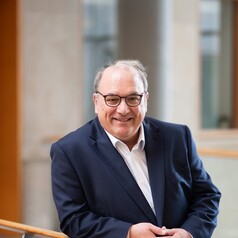
Patrick Fafard
Full Professor, Faculties of Social Sciences and Medicine; Senior Investigator, Global Strategy Lab, L’Université d’Ottawa/University of Ottawa
Before returning to academe Patrick Fafard served as a senior executive in the Governments of Canada and Saskatchewan. He is the author, co-author and editor of numerous publications on public health governance, public health policy, and the intersection of political science and public health. Patrick’s current teaching and research includes the public administration of public health, building the political science of public health, and global health governance to address the challenge of antimicrobial resistance. Patrick also serves in leadership roles for the Global Strategy Lab at York University and the University of Ottawa and for the Centre for Health Law, Policy and Ethics at the University of Ottawa.
Less ![]()
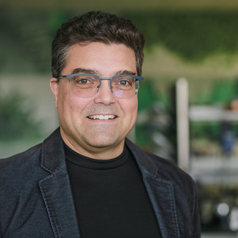
Patrick Faubert
Professor - Industrial ecology and climate change mitigation, Université du Québec à Chicoutimi (UQAC)
Industrial ecology; climate change mitigation; sustainable development; circular economy; greenhouse gas management; soil-atmosphere gas exchanges; biogenic volatile organic compounds
Less ![]()
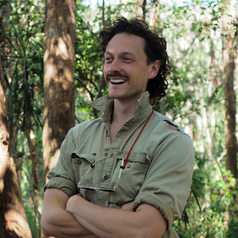
Patrick Finnerty
PhD candidate - Behavioural Ecology and Conservation Research, University of Sydney
I am a PhD student from the University of Sydney, School of Life and Environmental Sciences (SOLES) studying how we can strategically exploit plant odours to manipulate wild mammalian herbivore foraging behaviour as a conservation and wildlife management tool.
Less ![]()
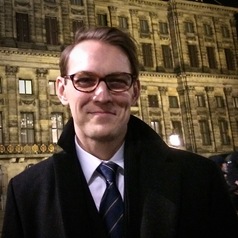
Patrick Flanery
Chair in Creative Writing, University of Adelaide
Patrick Flanery is Chair in Creative Writing at the University of Adelaide. Prior to joining Adelaide, he was Professor at the University of Reading, and subsequently Professor and Director of Creative Writing at Queen Mary University of London. He is the author of the novels 'Night for Day' (2019), 'I Am No One' (2016), 'Fallen Land' (2013) and 'Absolution' (2012), which was shortlisted for the International IMPAC Dublin Literary Award and the Royal Society of Literature’s Ondaatje Prize, among others. In 2019 he published a volume of creative nonfiction, 'The Ginger Child: On Family, Loss and Adoption'. His creative and critical work has appeared in 'Granta', 'Zoetrope: All Story', 'The Hopkins Review', 'The Times Literary Supplement', 'The Washington Post', 'The Guardian', 'The Los Angeles Times', and 'The Spectator', among others. He has held fellowships at MacDowell, the Rockefeller Foundation’s Bellagio Center, the Santa Maddalena Foundation, and the Stellenbosch Institute for Advanced Study.
Less ![]()

Patrick G. Watson
I am the principal investigator of three SSHRC-funded projects studying policing and police oversight. I am currently writing a book based on the first of these projects, a study of eight criminal trials in Canada and the United States where police officers were tried for on-duty shooting incidents and where video evidence played a key role in the trial. My current studies are of special investigations units decisions of officer "reasonablenss" for cases that do not proceed to trial. I am the first Canadian scholar to be the successful principal applicant of the SSHRC/DFG/ESRC/ARN Open Research Area grant (2022 competition).
Less ![]()
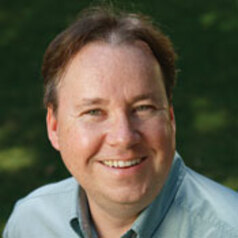
Patrick James
Dornsife Dean’s Professor of International Relations, USC Dornsife College of Letters, Arts and Sciences
Patrick James is is Dornsife Dean’s Professor of International Relations at the University of Southern California (PhD, University of Maryland, College Park). James specializes in comparative and international politics. His interests at the international level include the causes, processes and consequences of conflict, crisis and war. With regard to domestic politics, his interests focus on Canada, most notably with respect to the constitutional dilemma. James is the author or editor of 30 books and over 150 articles and book chapters. Among his honors and awards are the Louise Dyer Peace Fellowship from the Hoover Institution at Stanford University, the Milton R. Merrill Chair from Political Science at Utah State University, Lady Davis Professorship of the Hebrew University of Jerusalem, Thomas Enders Professorship in Canadian Studies at the University of Calgary, Senior Scholar award from the Canadian Embassy, Washington, DC, Eaton Lectureship at Queen’s University in Belfast, Quincy Wright Scholar Award from the International Studies Association (ISA) (Midwest), Beijing Foreign Studies University Eminent Scholar, Eccles Professor of the British Library and Ole R. Holsti Distinguished Scholar of the ISA (West). He is a past president of the ISA (Midwest) and the Iowa Conference of Political Scientists. James has been Distinguished Scholar in Foreign Policy Analysis for the ISA, 2006-07, and Distinguished Scholar in Ethnicity, Nationalism and Migration for ISA, 2009-10. He served as President, 2007-09, of the Association for Canadian Studies in the United States, President of the International Council for Canadian Studies, 2011-13, President of the Peace Science Society, 2016-17, and President of the International Studies Association, 2018-19. James also served a five-year term as Editor of International Studies Quarterly.
Less ![]()
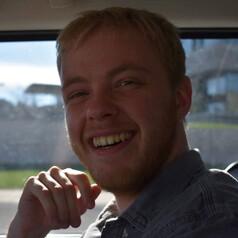
Patrick Kinghan
PhD Candidate, Faculty of Education and Research Assistant, Western University
I am currently in the first year of my PhD at the Faculty of Education at Western University. I am studying the experiences of Black students at Canadian universities using oral history interviews with Black alumni--research I have continued over from my Master's degree. My MA and Bachelor's Degrees are both in history with a focus on Black history and public history. Between my MA and my PhD I worked in several public history positions including as an archivist for the London Black History Coordinating Committee and a researcher for a children's TV show called Xavier Riddle and the Secret Museum.
Less ![]()

Patrick Leman
Pro-Vice Chancellor, Professor of Psychology, University of Waikato
I am a developmental social psychologist, My research explores how social relationships and wider social context influences children's and adolescents' understanding of themselves and others, and their acquisition of knowledge. I have active research interests also in the arts and psychology, mental health, and adults' epistemological understanding.
Less ![]()
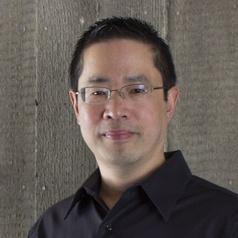
Patrick Lin
Professor of Philosophy, California Polytechnic State University
Patrick Lin, PhD, is the director of the Ethics + Emerging Sciences Group at Cal Poly, where he is a philosophy professor. He also serves on the US National Space Council’s Users’ Advisory Group (UAG) and is affiliated with Stanford Law School, Czech Academy of Sciences, World Economic Forum, Aurelia Institute, For All Moonkind, AIAA, and others. Previous affiliations include Stanford Engineering, US Naval Academy, Dartmouth, Univ. of Iceland (Fulbright specialist), Center for a New American Security, New America Foundation, UNIDIR, 100 Year Study on AI, and more. Prof. Lin is well published in technology ethics, incl. cyber, space development, AI, robotics, military systems, bioengineering, materials science, and more.
More details here: https://philosophy.calpoly.edu/faculty/patrick-lin
Less ![]()
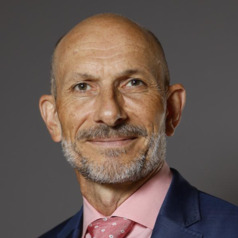
Patrick Louchouarn
Professor of Earth Sciences, The Ohio State University
Dr. Louchouarn joined The Ohio State University in 2022 as the senior vice provost for faculty. In this position, he leads the inaugural Office of Faculty Affairs at Ohio State. He is also a professor at the School of Earth Sciences. His multidisciplinary research focuses on understanding the impacts of environmental perturbations on biogeochemical cycling at ecosystem interfaces and addressing capacity building in earth and environmental education in diverse communities. The orientation of his research in biogeochemistry deals with: the identification of fire markers and combustion byproducts in complex environmental mixtures and their application to reconstructions of fire/combustion history, and natural and human-induced fluctuations in material fluxes within watersheds. In parallel, to address issues of learning and thinking in the environmental sciences, Dr. Louchouarn incorporates this research into inquiry-based educational models that question how people learn and make decisions on environmental issues.
Less ![]()
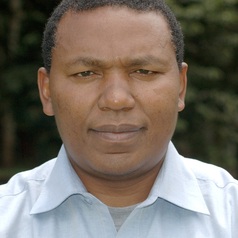
Patrick Maundu
Ethnobotanist, National Museums of Kenya
Patrick is an ethnobotanist interested in traditional uses of African biodiversity, and especially in food and nutrition. He works for the National Museums of Kenya. His research interests are: ethnobotany, traditional foods, indigenous knowledge, food and nutrition, biodiversity, and traditional farming systems.
Less ![]()
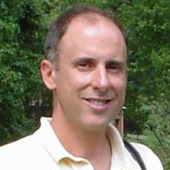
Patrick Megonigal
Associate Director of Research, Smithsonian Environmental Research Center, Smithsonian Institution
Less ![]()

Patrick Michel
Astrophysicien, Directeur de Recherche au CNRS, Responsable Scientifique de la mission spatiale Hera (ESA), Observatoire de la Côte d’Azur, Laboratoire Lagrange, Université Côte d’Azur
Dr. Patrick Michel est le responsable scientifique de la mission Hera de l’ESA et de l’équipe Théories et Observations en Planétologie (TOP) du laboratoire Lagrange/CNRS de l’Observatoire de la Côte d’Azur à Nice, France. Avec plus de 200 publications dans des journaux internationaux à comité de lecture, il est Directeur de Recherche au CNRS, et a le rôle de coordinateur du projet NEO-MAPP financé par le programme H2020 de l’Union Européenne. Il dirige ou contribue fortement à des projets de recherches et des missions spatiales consacrés aux astéroïdes et à la défense planétaire, tels que OSIRIS-REx (NASA), Hayabusa2 et MMX (JAXA). Il co-dirige la coopération AIDA qui comprend les scientifiques impliqués à la fois dans les missions DART (NASA) et Hera (ESA) ; il est Président du Groupe de Travail Géocroiseurs de l’Union Astronomique Internationale (UAI) et membre du comité de pilotage du réseau international d’alerte des astéroïdes (IAWN). Ces recherches se consacrent au processus de collision entre astéroïdes, à l’origine et l’évolution dynamique des géocroiseurs, aux propriétés physiques des astéroïdes et à leur réponse aux impacts, aux effets de marée, aux vibrations et aux modifications de leur taux de rotation. Il a reçu la Médaille d’Argent de la NASA, le Prix international Paolo Farinella 2013 pour sa contribution au processus de collision, la Médaille Carl Sagan de la Division Américaine de Sciences Planétaires pour son excellence dans sa communication avec le grand public et le Prix Jeune Chercheur 2006 de la Société Française d’Astronomie et d’Astrophysique. L’astéroïde 7156 Patrickmichel lui a été attribué par l’UAI.
Less ![]()

Patrick Mitchell
Assistant Professor of Microbiology, School of Medicine, University of Washington
Less ![]()
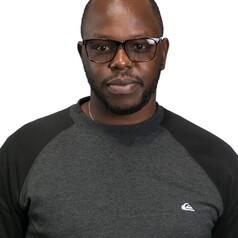
Patrick Nyamaruze
Post-doctoral research fellow, University of KwaZulu-Natal
Patrick Nyamaruze recently earned his PhD from the University of KwaZulu Natal. He is currently completing a post-doctoral fellowship at HEARD. His areas of specialization include adolescent sexual and reproductive health, gender and sexual diversity, mental health and health promotion research.
Less ![]()
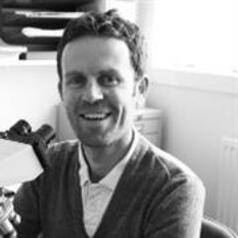
Patrick Quinn
Principal Research Fellow in Archeology, UCL
Patrick Sean Quinn is Principal Research Fellow in Ceramic Petrography at University College London Institute of Archaeology. He is one of the world’s leading experts on the scientific analysis of ancient ceramics and has written several textbooks on this topic. He is also a long-time skateboarder and is interested in the heritage of late twentieth-century cultural phenomena.
Less ![]()

Patrick Richards
PhD Candidate, College of Education, University of Saskatchewan
I am a life-long educator currently completing my PhD in Education. My academic expertise has covered civic issues in education such as the attempts to provide basic education globally and democratic possibilities in school systems. Specifically, my dissertation explores educational policy in Saskatchewan and the role of various groups in its development. As an educator, I have taught history and Indigenous studies at the secondary and post-secondary levels.
Less ![]()
- Market Data





















